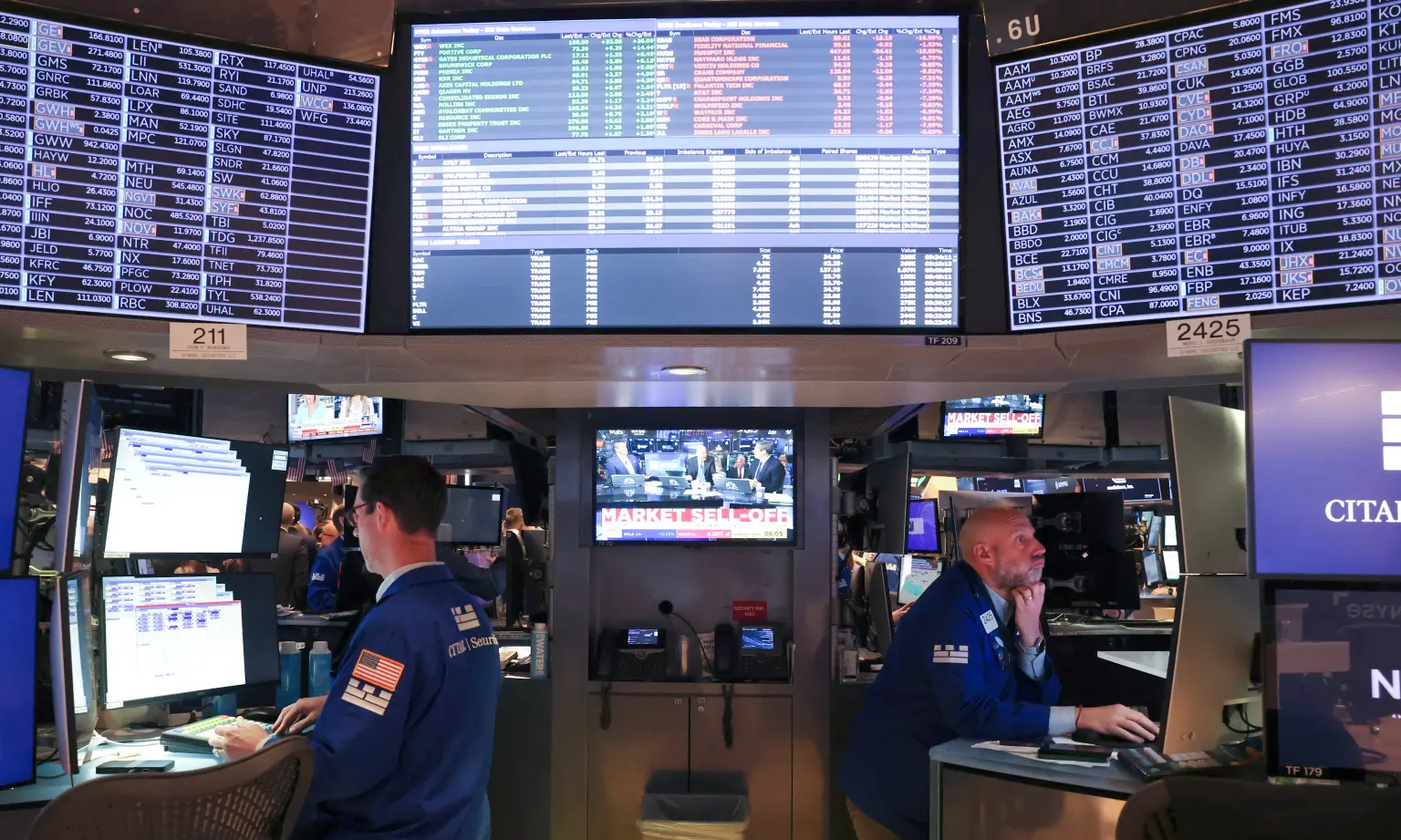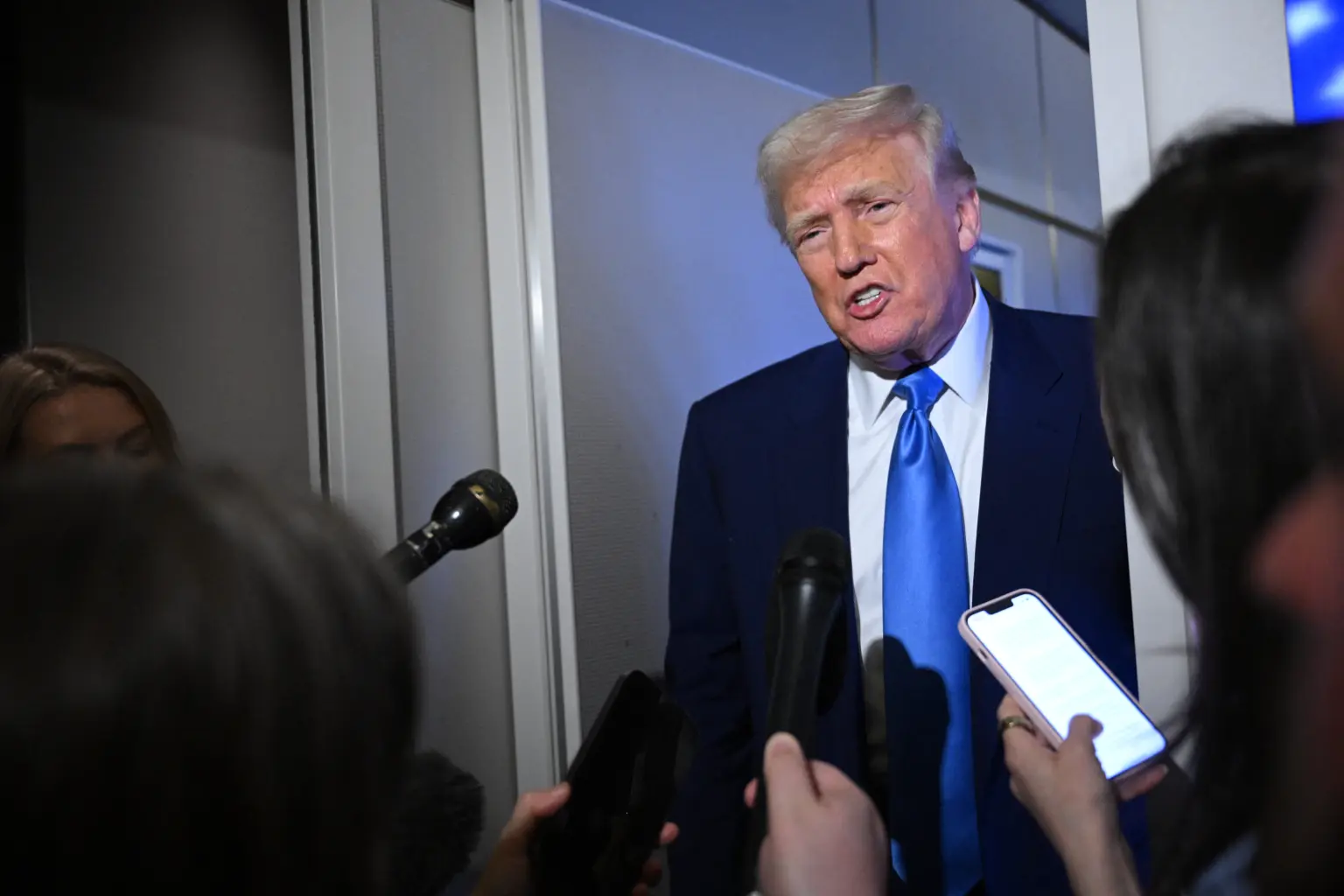By Josh Christenson. Media: Nypost
WASHINGTON — President Trump turned down a proposal by the European Union Monday for a “zero-for-zero” tariff scheme on industrial products, saying the offer was not enough to reverse 20% duties on imports.
“The EU has been very tough over the years,” Trump told reporters in the Oval Office when asked about the offer. “It was formed to really do damage to the United States in trade.”
“They don’t take our cars, like Japan in that sense. They don’t take our agricultural product; they don’t take anything practically,” he went on.

7
Traders work on the floor of the New York Stock Exchange in New York City on April 7, 2025.
AFP via Getty Images
“We have a [trade] deficit with the European Union of $350 billion — and it’s going to disappear fast,” he added. “And one of the ways that that can disappear easily and quickly is they’re going to have to buy our energy from us.”
Asked elsewhere about whether the global tariffs imposed Saturday were merely an opening for further negotiations, Trump responded: “We’re not looking at that.”
“We have very many countries that are coming to negotiate deals with us. And they’re going to be fair deals,” he responded. “In certain cases, they’re going to be paying substantial tariffs.”
“This is America First,” he said. “There can be permanent tariffs, and there can also be negotiations.”
“It’s the only chance that we will have to reset the table,” he added, noting the loss of 90,000 American plants since the North American Free Trade Agreement took effect in 1994.

AFP via Getty Images
European officials noted the first offer they had made to reduce trade disparities earlier Monday on imports like chemicals, pharmaceuticals, rubber, plastic, machinery and cars.
“We have offered zero-for-zero tariffs for industrial goods as we have successfully done with many other trading partners,” European Commission President Ursula von der Leyen said.
“Because Europe is always ready for a good deal. So we keep it on the table,” she said at a press conference alongside Norwegian Prime Minister Jonas Gahr Støre.
“We stand ready to negotiate with the US,” von der Leyen added. “We are also prepared to respond through countermeasures and defend our interests.”
EU Trade Commissioner Maroš Šefčovič, of Slovakia, pointed out the zero-for-zero arrangement had been first suggested to Commerce Secretary Howard Lutnick and US Trade Representative Jamieson Greer on Feb. 19.
“Right now we are in the early stages of discussions, because the US views tariffs not as a tactical step, but as a corrective measure,” Šefčovič said Monday.
European officials, however, still haven’t ruled out retaliating against Trump’s earlier 25% tariffs on steel and aluminum.
Global stocks have plummeted since Trump’s “Liberation Day” announcement April 2 of the imposition of a 10% baseline global tariff — as well as higher import taxes slated to take effect April 9.
Trump, 78, has also slapped all foreign-made cars coming into the US with 25% tariffs.
The EU’s average tariff on non-US agricultural products is around 1.6%, but 10% duties are put on American cars.
The pan-continental STOXX Europe 600 index fell 6% when markets opened Monday but rallied to pare its losses to 2.9% at the close, in part based on von der Leyen’s comments.
Department of Government Efficiency czar Elon Musk said over the weekend that he was “hopeful” the US and EU would move into “a zero-tariff situation.”
“I hope that the United States and Europe can establish a very close partnership,” said the Tesla and SpaceX CEO, “effectively creating a free-trade zone between Europe and North America.”
That had nearly become a reality during President Barack Obama’s second term, but talks broke down after the environmental activist group Greenpeace leaked information, leading to a backlash.
Other issues included discrepancies between regulations on food produced in the US versus Europe.
Negotiations for the so-called Transatlantic Trade and Investment Partnership ended during Trump’s first term in 2019.




























































































Discussion about this post